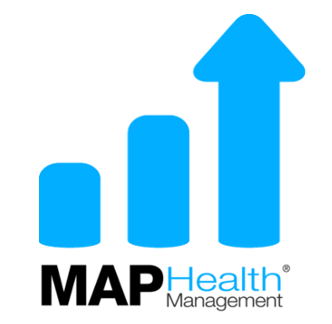Population Health Management: The new model in Behavioral Health
December 15, 2016 Jacob Levenson
In the first of a four-part video series on the management of Behavioral Health Populations we sit in on a conversation between MAP CEO, Jacob Levenson and MAP Clinical Director, Tom Kimball, Ph. D., LMFT as they discuss the struggles faced in the new model of managing Behavioral Health Population.
Why is a new model of managing Behavioral Health Populations needed?
Jacob: We need a new model for managing the behavioral health population because what we’re currently doing is very inefficient. We are not performing where we should with clinical outcomes nor economic outcomes. For instance, we have 21.5 million americans who fit the criteria for substance use disorder. In any given year only 5.5 million are receiving services, but we have greater numbers of people coming into the system each year. So how are we going to effectively ensure that these folks are getting the care that they need and those that are paying for it are getting the benefit of the bargain for subsidizing their treatment.
What are the obstacles faced by the field?
Jacob: The barriers and obstacles that exist in this field really tie back to fact that we have a lot of fragmentation in this space, and fragmentation creates silos -- silos are really a catalyst for inefficiency. So we have to embrace some new technologies, we have to embrace collaborative care, the utilization of data and evidence based treatment models to really break through these barriers and obstacles and really achieve better outcomes both economically and clinically. Another part of that too is the realization that the fee-for-service days are winding down. We’re moving into a value based paradigm and it’s going to drive how care is paid for and delivered for at least the next generation.
What are the benefits that this new model creates for the field?
Tom: The benefits and the opportunities because of the movement toward population management are myriad. Number one: can you imagine if everybody on the care team was talking to one another and had all the information to bring to bear on somebody who was within behavioral health or suffering from a behavioral health issue. If everybody had that same information could you imagine the efficiency of care that could occur? Could you imagine the effectiveness of that care and that it could be increased -- it would exponentially move that up.
The other thing is as we go to value based care there is an opportunity for people who are providing that care, particularly ones who are providing it effectively, efficiently, and doing it well -- what will happen for them is they will have a healthier practice. People will be drawn to them because they’ll have the information they need and because they’re offering the best kind of care for people who really need it.
Jacob: Imagine if we could improve outcomes through better collaborative care. Imagine if we could improve clinical outcomes and economic outcomes through leveraging data to understand who is experiencing what and when and how to best treat them. Imagine if we could create a much more predictable reimbursement model through understanding how to reimburse quality and how to identify those providers who are best treating those who are in need.
Tom: How this applies to the individual is: somebody comes in and they’re struggling with a behavioral health issue and now the whole care coordination team has the same information. Everybody is on the same page providing efficient and effective care to this individual and their family members. Can you imagine how amazing it would be if everybody was on the same page? If we could funnel clients and their family members to the most effective providers? And how we might change how we manage and how we help people who are struggling with behavioral health issues.









